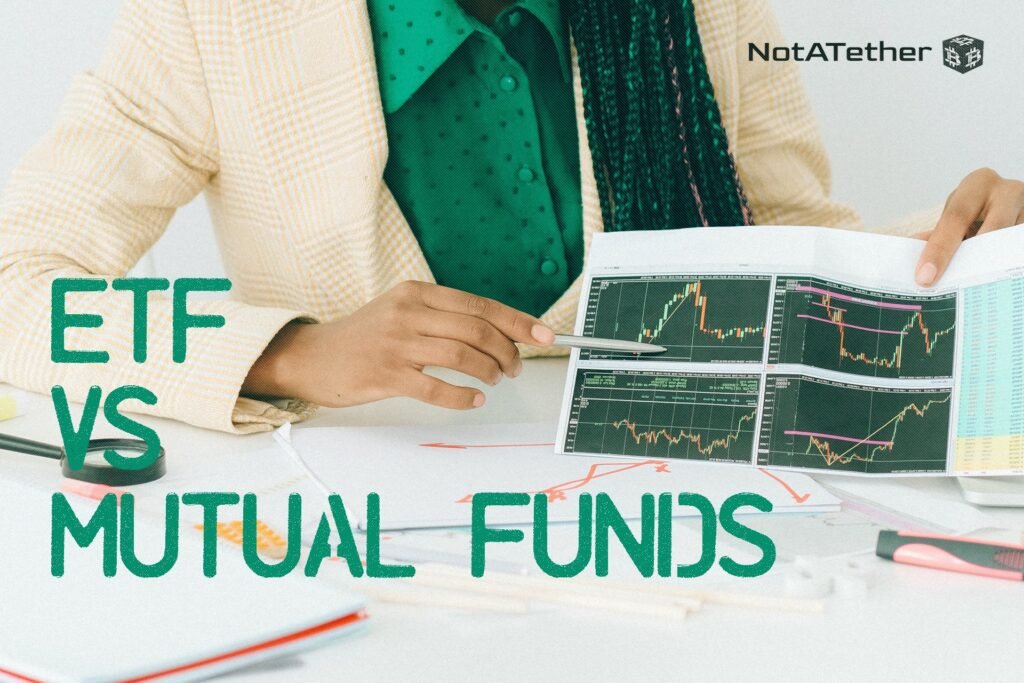Mutual Funds and Exchanged Traded Funds (ETF) consists of many different assets and both are the funds in which investors can invest and diversify their portfolio. However there are some key differences between the two and most investors don’t know the difference between mutual funds and ETFs
We shall compare them both in detail.
What Are Mutual Funds?
Mutual funds have higher minimum investment requirement hence they target big institutions and whales who have a lot of money to invest. The minimum investment requirement may start from $3000 or $5000 or even more.
Mutual funds are managed by a Fund manager or their team who are in complete control and can make decision to buy or sell stocks or securities in order to help the investors gain more profit. Since the investments in mutual funds are high, it is also costly to manage the mutual funds as it requires manpower and mind power to make it a more profitable investment.
The buying and selling of mutual funds directly take place between investors and the fund. The price of the fund is usually determined at the EOB (End of business day).
Types Of Mutual Funds
There are two structures of mutual funds.
1- Open Ended Funds
In open ended funds there is no limit to the number of shares the mutual fund can issue. In this case if the investors buy more funds, then more shares are issued and there is no cap on the number of shares to be issued.
2- Closed Ended Funds
These funds are limited to specfic number of shares and investors cannot demand more shares. Also, the prices are based upon the investor’s demand and not by the net asset value (NAV).
What is ETF?
An ETF, or Exchange Traded Fund, is an investment type that gather money from investors and uses the funds to buy stocks, bonds, and other securities. Exchange Traded funds are traded like stocks. You can have small invest in ETF and there is no requirement of a minimum high investment. ETF is created in the form of Lots by investors and these are traded through out the day. You can sell ETF short and have an oppuritunty to arbitrage it.
There are Seven types of ETFs namely
1- Exchange Traded Open End Index Mutual Fund
2- Exchange Traded Unit Investment Trust (UIT)
3- Exchange-Traded Grantor Trust.
4- Exchange-traded notes
5- Partnerships
6- C Corporations.
7- Exchange-traded managed funds.
Difference Between Mutual Funds and ETF
Following tables shows the main difference between the Mutual funds and ETF.
Mutual Funds |
Exchange Traded Funds (ETF) |
| High Minimum Investment | Low Minimum Investment |
| Traded at the end of the day | Can be traded throughout the day |
| No short / arbitrage | Can be sold short or arbitrage |
| Actively managed portfolio | Passiviely managed portfolio |
| Bought directly from the company issue shares | Traded on the Exchanges like shares |


